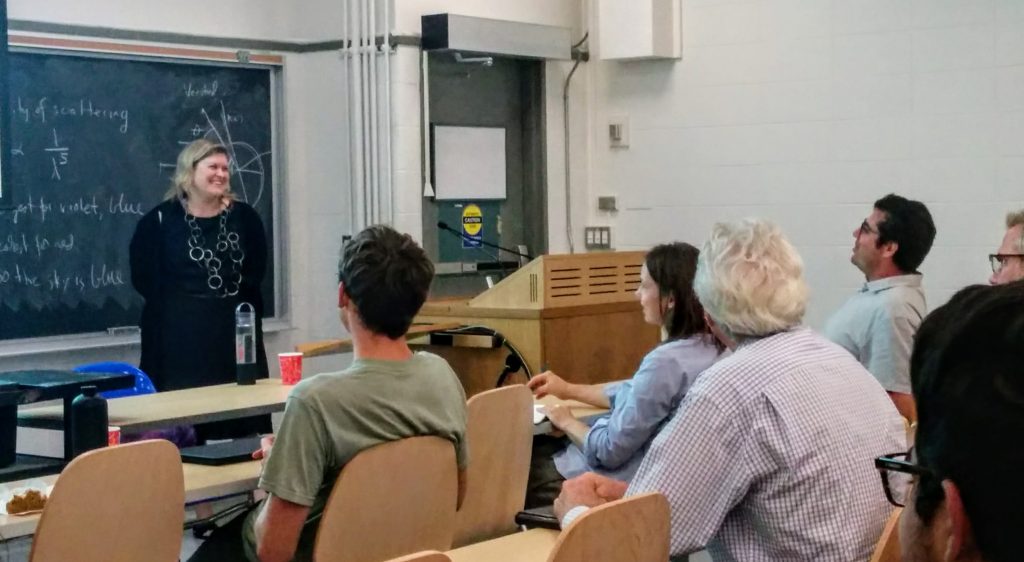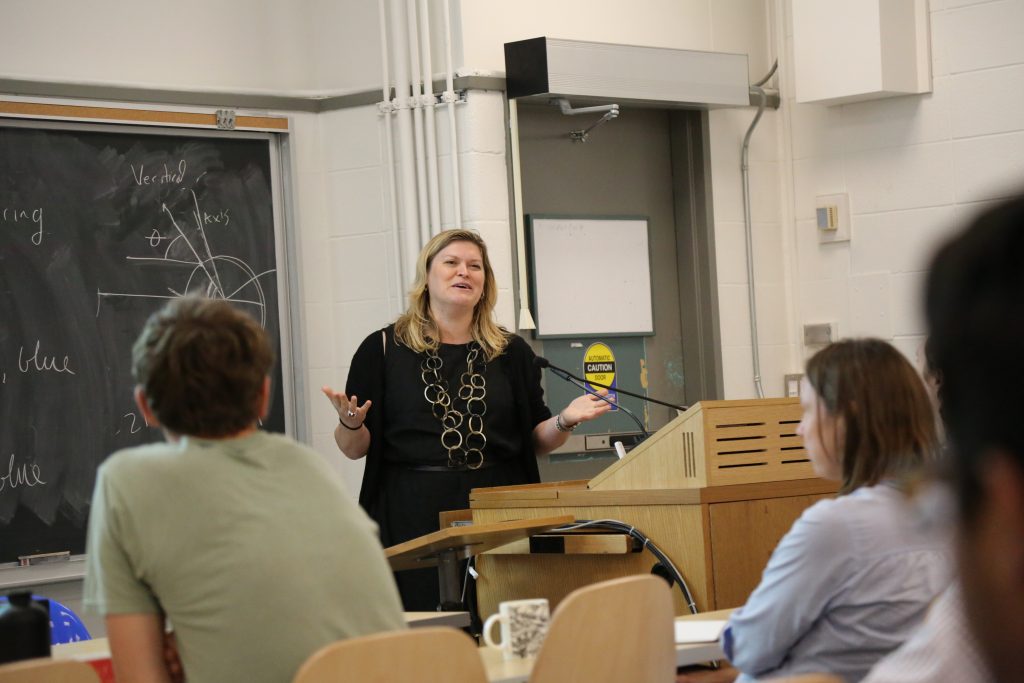
Dr. Kelly Clifton was our guest at U of T last week. She engaged with graduate students and postdocs and their research through roundtable discussions – in both Geography and Planning and in Civil Engineering – on September 21 and 22. On September 22 she gave a lively seminar at Sid Smith, co-presented by Geography and Planning Intersections seminar series and the UT-ITE seminar series, for a large and appreciative audience.
Dr. Clifton stopped by Toronto en route from Portland, Oregon to Estérel, Québec for this week’s International Conference on Transport Survey Methods (Sept. 24-29) where she will co-Chair a workshop entitled “Attitudes and perceptions: How to measure them in quantitative surveys.”
Abstract
This presentation introduced a framework and proof of concept application from Portland, Oregon that facilitates the integration of walking activity into four-step travel demand models, allowing cities and regions to implement these advances with minimal changes to existing modelling systems. Specifically, the framework first changes the spatial unit from Transportation Analysis Zones (TAZs) to Pedestrian Analysis Zones (PAZs), a finer-grained geography better suited to modelling pedestrian trips. Then, pedestrian trip origins and destinations are identified using trip generation and destination choice models. The opportunities and challenges for advancing and implementing this framework were discussed.

Short Biography
Kelly J. Clifton is a Professor of Civil and Environmental Engineering at Portland State University. Dr. Clifton conducts research and teaches courses in various aspects of transportation planning and policy, including: travel behaviour, land use and transportation, physical activity and health, and travel survey methods. She is an affiliate of the National Institute for Transportation and Communities and a fellow in the Institute for Sustainable Solutions, both housed at Portland State University. She was the inaugural chair of the World Society for Transport and Land Use Research. Her latest research develops methods to evaluate the transport impacts of new development, quantifying equity issues in transport, anticipating impacts and applications of “smart” cities’ technologies, and modeling demand for non-motorized modes.
